CppCon 2022 Finding Whether a Number is a Power of 2 -- Ankur Satle
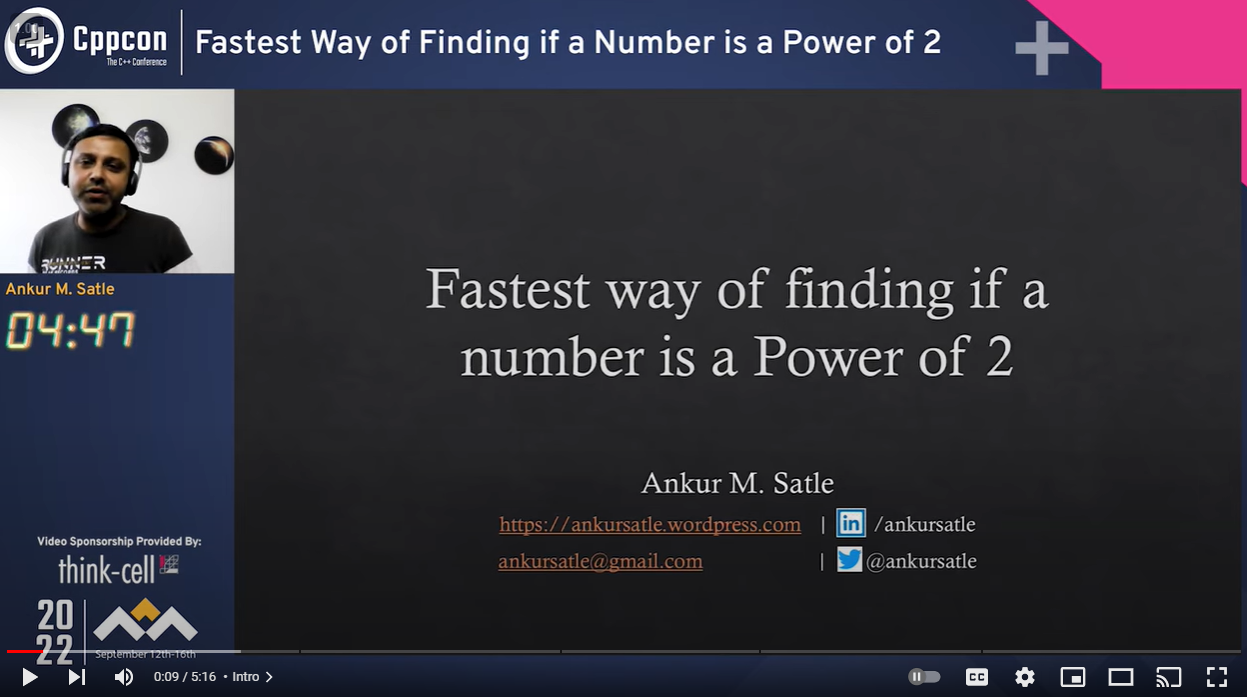 Registration is now open for CppCon 2023! The conference starts on October 1 and will be held in person in Aurora, CO. To whet your appetite for this year’s conference, we’re posting videos of some of the top-rated talks from last year's conference. Here’s another CppCon talk video we hope you will enjoy – and why not register today for CppCon 2023!
Registration is now open for CppCon 2023! The conference starts on October 1 and will be held in person in Aurora, CO. To whet your appetite for this year’s conference, we’re posting videos of some of the top-rated talks from last year's conference. Here’s another CppCon talk video we hope you will enjoy – and why not register today for CppCon 2023!
Lightning Talk: Finding Whether a Number is a Power of 2
by Ankur Satle
Summary of the talk:
I asked this question on social media and got many diverse responses. I will present the various approaches and compare them. I will finish with the options C++20 provides with the bit header. https://en.cppreference.com/w/cpp/numeric/has_single_bit

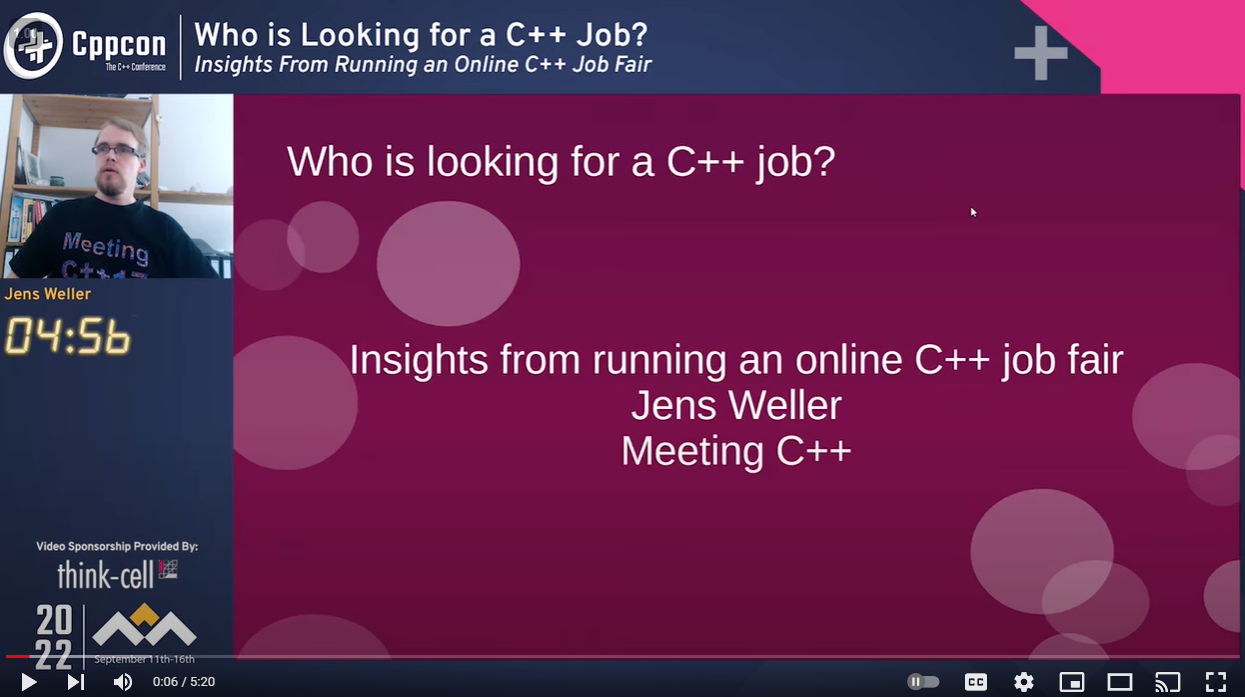 Registration is now open for CppCon 2023! The conference starts on October 1 and will be held
Registration is now open for CppCon 2023! The conference starts on October 1 and will be held  Operator overloading. Looks great. Reduces verbosity. Until it doesn’t.
Operator overloading. Looks great. Reduces verbosity. Until it doesn’t.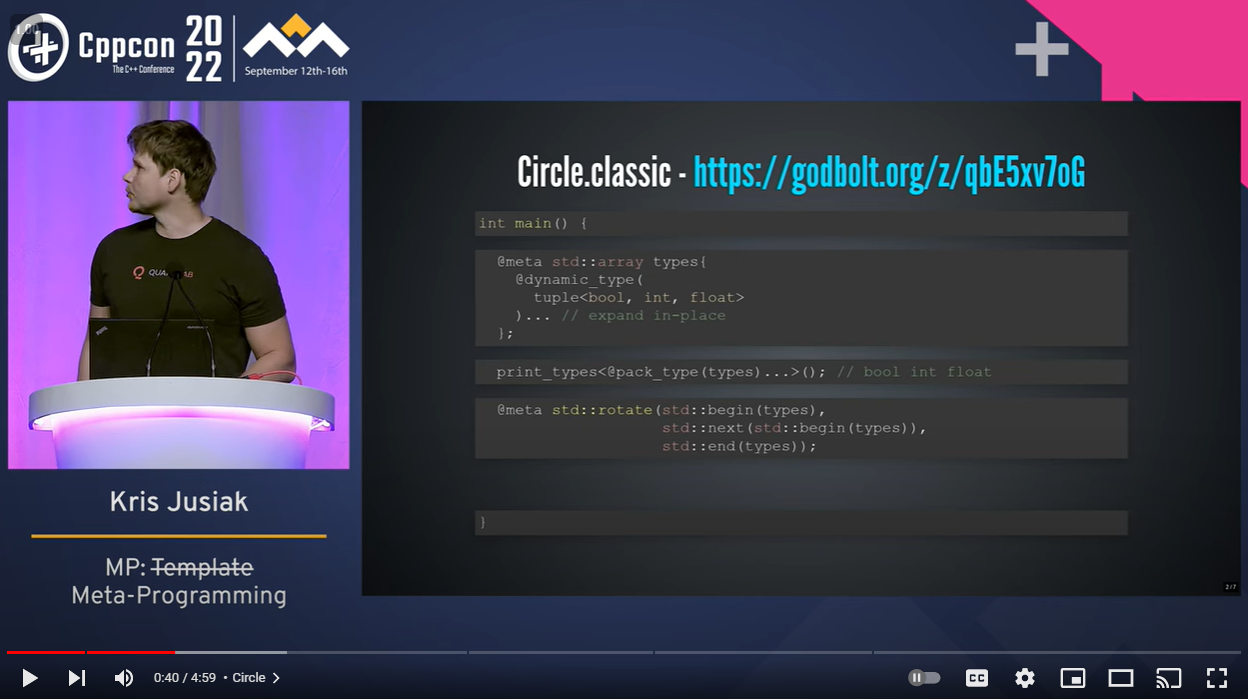 Registration is now open for CppCon 2023! The conference starts on October 1 and will be held
Registration is now open for CppCon 2023! The conference starts on October 1 and will be held 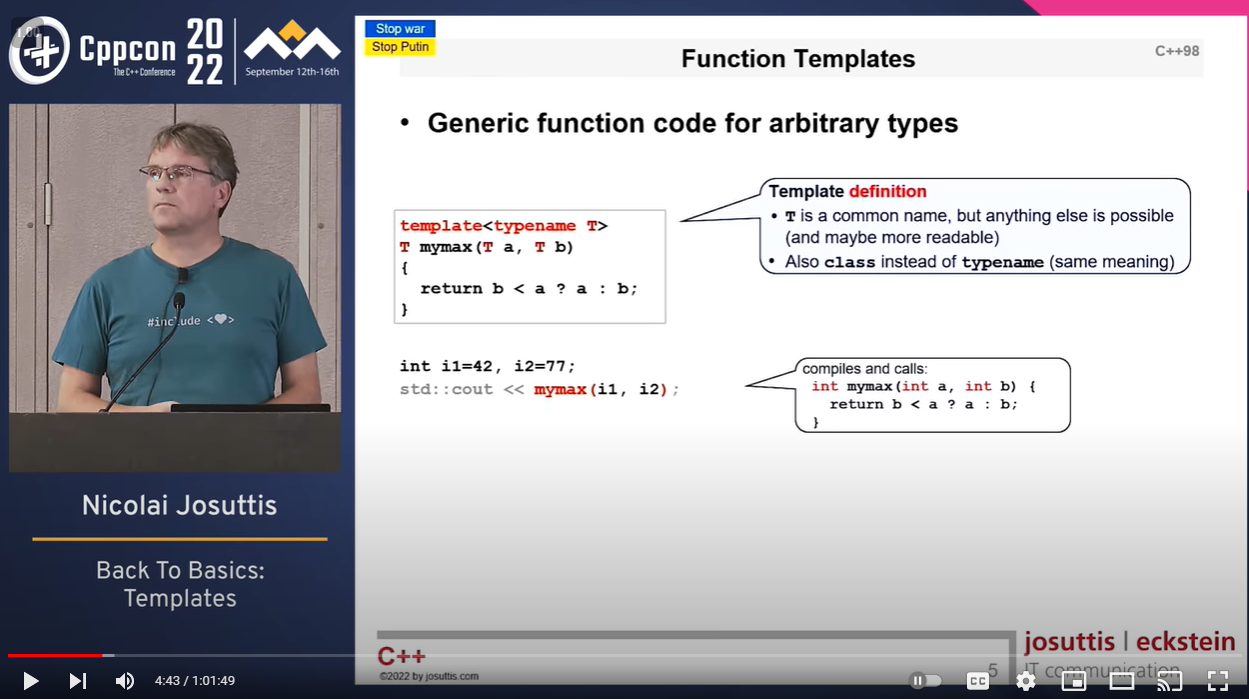 Registration is now open for CppCon 2023! The conference starts on October 1 and will be held
Registration is now open for CppCon 2023! The conference starts on October 1 and will be held 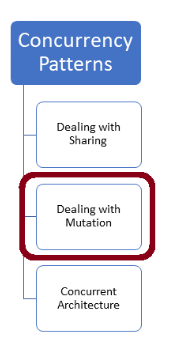 Guarded Suspension applies a unique strategy to deal with mutation. It signals when it is done with its modification.
Guarded Suspension applies a unique strategy to deal with mutation. It signals when it is done with its modification.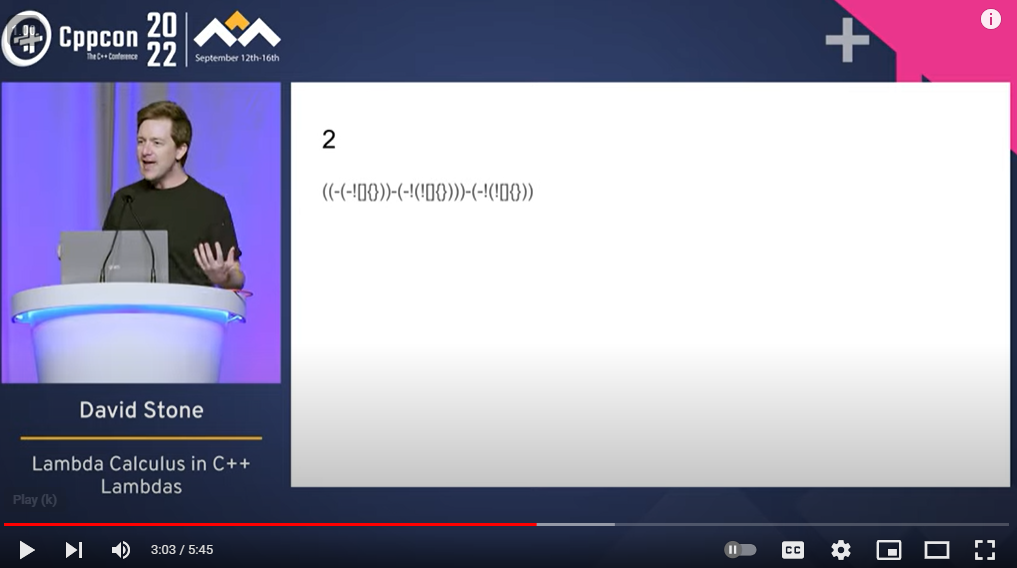 Registration is now open for CppCon 2023! The conference starts on October 1 and will be held
Registration is now open for CppCon 2023! The conference starts on October 1 and will be held  Recently, our team at Meteksan Defense is upgrading its development environment to use newer versions of many tools and programming languages. One of the more difficult transitions has been the upgrade of our C++11 code base to C++17 for our embedded applications.
Recently, our team at Meteksan Defense is upgrading its development environment to use newer versions of many tools and programming languages. One of the more difficult transitions has been the upgrade of our C++11 code base to C++17 for our embedded applications.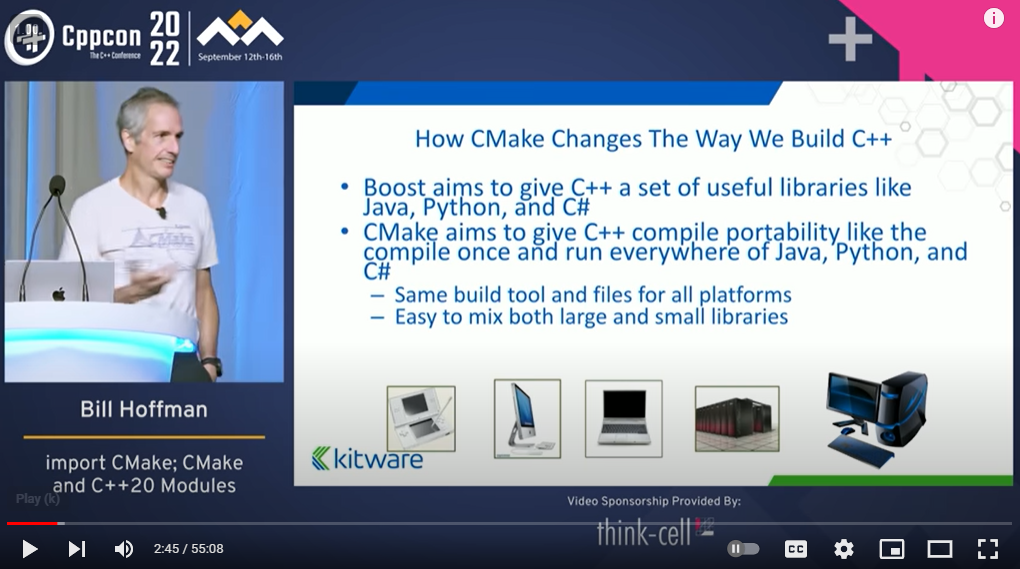 Registration is now open for CppCon 2023! The conference starts on October 1 and will be held
Registration is now open for CppCon 2023! The conference starts on October 1 and will be held